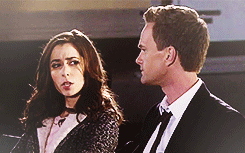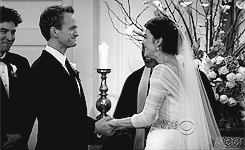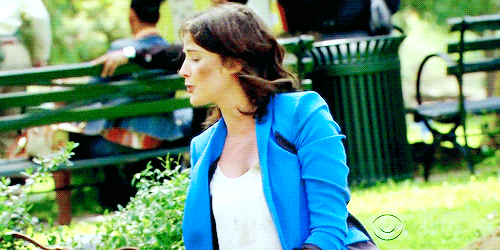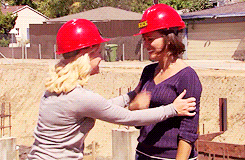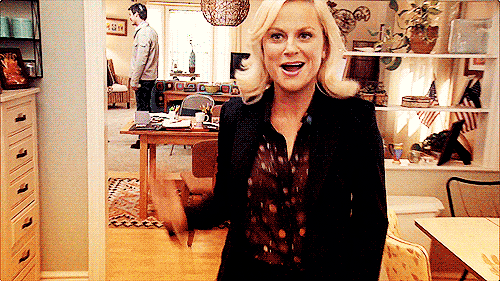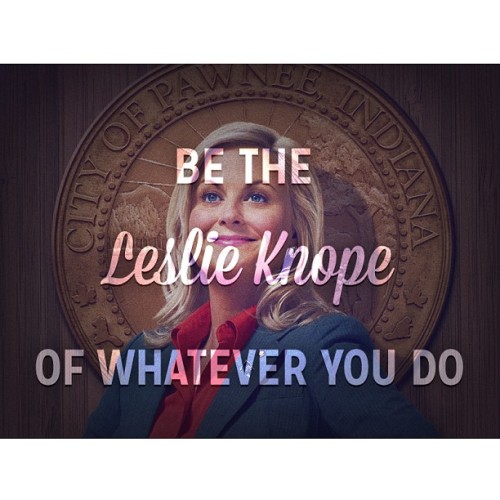The Author Wrote
Words Here
Meta-Commentary
is when a step back is taken to observe the act that is taking place, such as
when a photographer takes a photo of another photographer who is taking a
picture. It is a reflection that illustrates or clarifies the act of taking a
picture. This is the plight of the modern sit-com. Sometimes these sit-coms are
obvious set ups that are set in a television studio setting or other times they
put their characters through things that seem to be a reference point for
sit-coms. “30 Rock” and “The Office” give an idea of how creating a television
show looks like in a satirical way, although “The Office” is a paper company,
it has been making a documentary in the classic style of a reality television
set up with common reality television techniques. This is important to modern television because
in order for the genre to develop it needs to show that it can laugh at itself,
and sit-coms are a commentary on society itself. When meta-commentary is
involved it points out some facts that television itself has to deal with
whether it is in the economy, issues of race, capitalism, social classes, and
various aspects of living. In fact it can even make a statement by not really
acknowledging these things, and acting like the meta-commentary is not there,
while making it clear that is aware that these usual conventions are being
broken, such as the case with “Seinfeld”.
This article is
not really to point out what modern television show is “THE Best”, but more on
what modern shows have influenced television through meta-commentary as well as
remaining true to reflecting the times, and affecting the times. Personally if
I were to include my favorite sit-coms the, list of shows I would discuss more
in depth would include, “The Nanny”, “Friends”, “How I Met Your Mother”,
“Everybody Loves Raymond”, and “Scrubs”.
I personally believe that “Friends” and “Everybody Loves Raymond”
deserves honorable mentions in changing television history because of the
unique sit-com styles in the writing. As much as it pains me to not really
include them in my analysis, the focus is more acutely on how important meta-commentary
is important to the modern sit-com. “How
I Met Your Mother”, “The Nanny”, and “Scrubs” are some of my personal
favorites, and “Scrubs” has an originality that deserves praise although there
is not necessarily anywhere to put that in the textbooks. Although the creator
of “Scrubs” has interesting commentary on why “30 Rock” has changed television
with its meta-commentary. However even these sit-coms would not necessarily
seem relevant without the presence of meta-commentary in the sit-com spectrum.
A show that first brought up the meta-commentary
in a way that has a lasted impact is “The Dick Van Dyke Show”, it was a show
within a show, Rob Petrie is the main character who is the head writer for the fictitious
“The Alan Brady Show”, which quite humorously, Alan Brady was played by Carl
Reiner, the real writer of “The Dick Van Dyke Show” (Reiner, The Bottom of Mel Cooley’s Heart). It
was one of the first shows that made the public aware of the writing process,
the people behind the show, and more on the problems of dealing with movie
stars with flaming egos (Reiner, The
Bottom of Mel Cooley’s Heart). This show paved the way for the meta-commentary
that is found in many modern sit-coms, not only sit-coms that contain meta-commentary.
So in this paper I want to focus mostly on the function that this meta-commentary
in the modern sit com has on society and what it brings to the table for
discussion on mostly social issues, but is not necessarily limited to social
issues. So if you think you have what it takes to read “The Author Wrote Words
Here”, read on to know how to better serve mankind.
Situation
comedy often has guest stars that are mainstream or have stood the test of
time. This still continues even in live shows such as “Live from Studio 6H”,
where some of the cast from Saturday Night Live is there as well as Sir Paul
McCartney. With this episode, it teaches
the importance that television has had on important issues of the past but also
the hypocrisy of television as if to point out the fault of the human
condition. The debate “30 Rock” brings to the table for live comedy is one of a
montage, spoofing old television shows that are easily recognized as a uniting factor
for generations (Fey, Live from Studio 6H).
“30 Rock” touches many subjects such as product placement, reality television,
the writing of a show, a star’s drama, and the capitalizing nature that takes
advantage of every situation, and national disaster is no exception. With all of this, it is pathetic to watch “30
Rock” try to seem relevant by putting on that fake “Queen of Jordan” television
show. Catchphrases, now that is relevant, phrases that can be employed in
conversations. Such catchphrases include “I’ll take that with cheese”, and
“rude”, who could be that stupid (Fey,Queen
of Jordan 2)? Do people actually remember that kind of thing; do people
think that it forms some kind of uniting factor when they can connect that in
real life? Although “30 Rock” is not
necessarily attacking reality television with this ploy, no this is a ploy that
many writers use, and despite its absurdity, it works. This needs to be
stopped, these catchphrases are evil, what harm do these catchphrases do? It is
so obvious that I will not even mention them. “30 Rock” even mocks itself, not
a smart move, but could it possibly by mocking itself, be lending some validity
to itself as well as television itself? Nah, why would anyone want to laugh at
themselves? Everyone knows that if you laugh at yourself in a compromising
situation then the situation only get worse because you admitted that you have
cause to be uncomfortable.
A
further model of why television shows in general should have cause for shame is
the fact that many business schools are using “The Office” to teach students.
Television has caused these professors to become lazy and obviously on their
way to inadequacy because their students are learning from “The Office”, the
capital letters are indeed correct, a television show is teaching these
students. Attendance is up, because honestly if I got to watch television for a
class, I would love it (Kilburn 23). Do I feel like I would learn anything
besides the plotline of “The Office”? In a word, no, I do not feel like I would
learn very much from “The Office”. “The Office” helps students develop an idea
of “what not to do in business”, which seems to be a thread throughout “The Office”.
These kids will hopefully learn what to do in business by learning all the
incorrect ways to handle a business (Kilburn 29). All I got to say is practice
it wrong, and then you will do it wrong. What were these college chumps
thinking? These students are just babies who are unable to determine the
differences in acceptable and unacceptable behavior.
Similarly, “Seinfeld”, with the characters who
did not really ever develop, according to Kilburn may teach a little something
on how to socially interact. What can undeveloped characters teach society to
develop? Morreale points out the terrible hopelessness of sit coms in its
ability to stay relevant, as “Seinfeld” pointed out so clearly in how the
characters could not successfully interact with others. “Seinfeld” is literally about nothing at all,
in fact it is even defined by Jerry Seinfeld as “the spaces in between life”(
Morreale 108). What the hell is that supposed to mean? In “Seinfeld”, plot
conflict is often minimal. Characters pastimes include avoiding work and
destroying their relationships. “Seinfeld” is a bit of a commentary on the
whole genre of sit-com itself, how can that be relevant (Morreale 111)? They
argue over their trivial issues in their love life too! This is not relevant
anymore, people are not petty about love anymore, and people do not try to get
out of work like they used to, as well as spend more than their means allow,
our society knows better. At the end of “Seinfeld” we see the show wasted nine
years of television space. Even “Seinfeld” put its characters on trial, and
through this, its viewers, after all they had watched this abominable behavior
of the “Seinfeld” clan. The final episode as stated by Larry David involved,
“no hugging, no learning”, casting off former television show comedy endings
(Morreale 111). This cast off the previous sit-com feeling of “warmedies” that just
simply gave the audience a moral to everything while having a happy ending with
a nod to their viewers (Morreale 112).“Seinfeld” also did not have any true
romance that bloomed, the characters never grew in the sense that a human being
would, instead they followed the model of a sitcom character that is hardly
seen at work, and simply seems to consume products that seem well past their
means, not even contributing to society as a whole. (Morreale 113) People will
never learn how to help others if they watch people who never learn how to
develop. If you want to blame the modern
plight of television comedy, “Seinfeld” ruined it by mocking the entire genre
and displacing characters as well as viewers. In fact it paved the way for such
atrocities such as “30 Rock” which also mocks the hand that feeds them. Rude. People
did not necessarily want television characters that are just a product of their
small little world after “Seinfeld”, so warm comedies were left in the past to
make room for shows that were willing to mock their own existence. In fact “Seinfeld”
tore the genre apart; it mocked the sit com almost to oblivion because it
overturned the rules in pointing out that characters in a sit-com do not have
the ability to truly develop. This
surely ruined all creativity for the genre since it destroyed it and sit coms
had to be built up again to find a relevant model to serve public interest.
“Seinfeld” was
such a revolutionary program because it was brought to the attention of the
public, that sit-coms do not develop and have limited ability to getting any
meaningful development. “Seinfeld” got
people to talk about many little things in life that did amount to something.
It was a show people could talk about the next day at work. The function of “Seinfeld”
in retrospect was to flip the sit-com genre on its head and give a voice to the
conventions in television that needed to be addressed with conflicting reality.
Sit-coms over generations have offered insights in to social, economic, and
governmental issues that needed to change. Jokes help people be able to come
face to face with some of the bigger issues with confidence. Making light of a
dire situation makes the situation more approachable. Seinfeld opened the way
for old conventions to be broken so that the whole genre could get a makeover
if it chose to, and it did. In a way “Seinfeld” led the way for reality
television, because after realizes just how fake scripted television can be
trying to deceive its audience, it can make anyone want to watch someone put
themselves through hell for a bucket full of money.
The
only reason that any show stays on television is the money that flows into the
network through advertisement. It may take some by surprise the idea of product
placement but it is common in today’s culture, shows like “30 Rock” will shamefully
exploit their products to disrupt the flow of the story to make a product
placement—such as when Liz Lemon announces Tom Cruise’s new movie Rock of Ages, or has a Kraft single that
walks on screen as a voice announces that “it’s the cheese that won world war
two” (Live from Studio 6H). It is a
cheesy tactic that is demeaning to both the show and the product. Businesses
may use a triangle of products, characters, and consumers in order to determine
how to advertise on television (Russell 8). We are the consumer and the show’s
product placement can give us possibly an unfair opinion of a character based
on how the consumer relates to the product, similarly if the audience loves the
character, then positive feelings may be issued toward the product. How are we
standing for such type of manipulation? I must thank “30 Rock” for making me
aware of the situation, but I wonder where there sense of pride is, after all
making fun of such a medium as television is not to be taken lightly. Product
placement is an important part of the economy as these over-paid companies
spend money through various platforms but nonetheless it is a large part of the
economy. So this meta-commentary has made the public aware that indeed our
entertainment has definite influences that can affect the integrity of the
program and manipulate people to spend money in a despicable fashion. It has made us aware that these executives
are simply using us as guinea pigs without thought of what good programming
actually is, but simply tossing company slop our way, wasting money
frivolously. Is the television industry taking lessons from the United States
government? No, television does a better job because although television does
make questionable decisions, this meta-commentary also shows that there is room
for all kinds of good programming, taking risks allows for large success to
come their way. Satire is a key influence in meta-commentary, because it uses
satire to in a way tell the truth about society and the genre, while overdoing
it so that it can effectively say “hey, we do this, and it’s not ideal, but
since we are being honest with you about it, please forgive the system, enjoy
the show, and learn something new.” In my opinion, that statement is what meta-commentary
does for television, it allows television to offer an apology for its shortcomings
but insistence that it still has something to offer to the public.
In fact, this
article very truthfully, no joke, points out that “The Office” is past its
prime, and only exists because of the reason why any television show lasts, the
audience does not want to give up the familiarity of having “The Office” available
(Martin para 4,5). As an audience we consider television show “ours” because it
brings us closer to who we want to be, as the article claims which makes the
human condition sad (Martin para 6). Now that will be a sight to behold, a world
filled with nerdy creeps, like a bad GoDaddy commercial. This genre is not to
be held in any sort of model because the whole premise is finding an identity
with a character that by nature is a screw up in some form. We should not hold
a friendship with any character because none of them are perfect, and us real
humans are so much better, we should not exercise sympathy towards a fictional
character, it benefits us in no way to have television teach us compassion
through love of a fictional character.
A
Buffalo news station WIVB-TV, explains that it is the news that these station
argue is the real money makers (“Loyal Viewers Means…”para 4, 5). This report
also claims that a television show does not necessarily survive because of its size;
after all it has to have advertisers willing to pay for advertising. Quite
often advertisers choose programs that they perceive as quality programs that
means that college educated people watch them, making them with more money to
spend (“Loyal Viewers Means…”para 21). However there are not many quality programs
that appeal to minorities because networks have decided that these kinds of
programs do not pay. Gray claims that people got tired of black comedies like
“The Cosby Show” and “The Fresh Prince of Bel Air” (106). Although it is a
noble goal to try to include minorities, it is a hard thing to keep up because
“white” sit-coms sell advertising better, and is the majority of viewership
(Gray 104). Throughout television history black comedies have brought minority
issues to the front of the nation’s attention. That is the power of sit-coms.
However modern sit-coms have hit a wall, despite television’s best efforts to
include minorities, we can now safely call sit-coms racists.
This
narrative hopefully pointed out how stupid sit coms are and advise you dear
reader, to never watch them. There is no need for anyone to watch a sit com
because it is only carefully planned out thoughts and jokes, a huge time
waster. There is no way that such profoundness is relevant in a flippant world.
In fact it is backwards in its thinking, but that is partly America’s fault,
people are comfortable with their shows and are not fighting for the change
that they want to see in the networks.
Bill
Lawrence was a writer and creator of the television show “Scrubs” (Lawrence).
This man came up with an unoriginal sitcom. Why the writers guild would want to
interview a man who wrote for “Friends”, “The Nanny”, “Cougar Town”, and
“Scrubs”, is beyond me (Lawrence). He talked about coming up with an original
idea. More importantly he called sit coms predictable, so his advice is to come
up with something unpredictable to give it a new and fresh spin (Lawrence).
That seems a bit contradictory. Television has lost the ability to surprise
people and it is funny that he finds “30 Rock” funny (Lawrence). Although “30
Rock” may help the modern sit com, it does not mean that it is funny. According
to Bill Lawrence though, “30 Rock” gave writers like Bill Lawrence a voice
about their experiences in the television world (Lawrence). This has no ability
to teach and only matters to the few in the population that are creative.
Creativity should have no bounds but Bill Lawrence stresses the importance of
bounds in scripts in the practical world (Lawrence). How droll.
Comedy
has a way of evolving with the changes in people. It is stupendous that a business
would make fun of itself; it is scarcely conceivable that it could survive this
way. It is amazing that such creative people would not have any creative ideas.
Television should always be a surprise but too often it is not, obviously
showing that creativity is dead. Bill Lawrence’s writing in Scrubs will never
amuse you or make you laugh with your friends because it is just too dang
predictable. It is slightly amusing that Bill would find “30 Rock” fresh, since
“30 Rock” is only fresh in that it mocks everything about television. How fresh
is that? Television characters can never teach any valuable lessons to people.
These are selfish actors/actresses playing selfish characters that live in
their own little world, only taking selfishly from society.
Meta-commentary
in sit coms serves as a sort of a spring board for all other television shows,
especially sit coms. In order to keep relevant and to introduce social and
economic issues to the public in a fun way, in order to get people talking
about these topics, there needs to be a mechanism in place that mocks or lends
insight to television itself in order to include it in these processes. It is
also a way of coming to an acceptance that television is a constant in American
culture that is worth preserving. So television offers creativity to the manner
of thinking, especially with meta-commentary shows that act as a sort of twist
to the rest of television who keeps a completely serious tone in how it is
presenting a story. As television is a genre that has been around for about
sixty years now, storylines seem redundant in the sit com world, as the genre
has mostly stuck with conventions brought in with the 1950s scripted
television. However with meta-commentary it brings in new insights to the genre
itself to flip it over its head, just a bit to make people aware of the genre
itself as well as the issues that it is presenting. It is my belief that meta-commentary
helps television work as a sort of government where meta-commentary is a form
of checks in order to keep the medium in balance. When one genre is exploiting
a factor to an extreme such as reality television with its extremely vain and
selfish stars or certain standards are broken that the public values such as
fair press, then meta-commentary comes in to mock the genre. This hopefully
will lead to more people to make better decisions on their viewing practices or
to perhaps see that although television is not perfect it is able to point out
valuable lessons, because it knows that it is not perfect. Meta-commentary helps
television function so that television does not appear to snobbish, as if it
were unaware of its faults, meta-commentary points out these faults so that
viewers can get past this, and hear what the show is really trying to say to
the viewer. As in an essay, meta-commentary
although absurd at times, offers a sort of a parody type critique so that a sit
com has valid value, as it should.
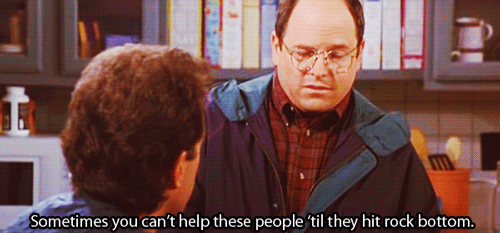
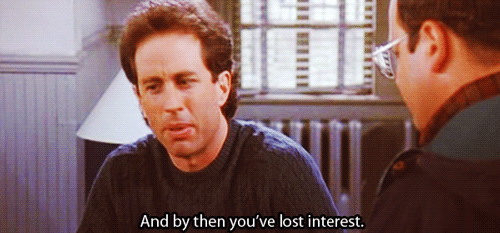
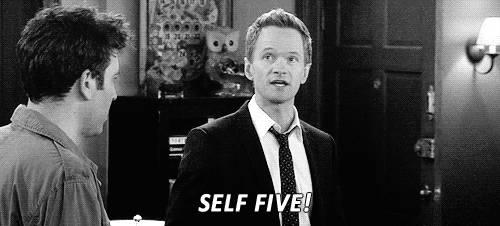
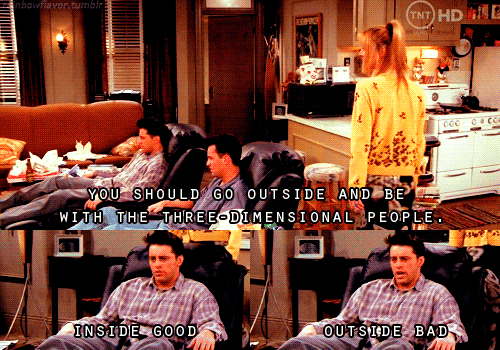
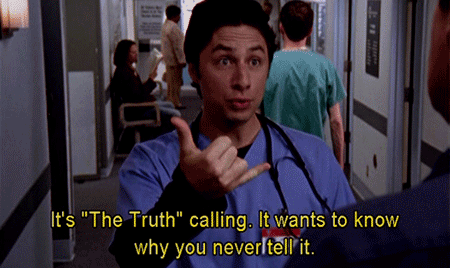
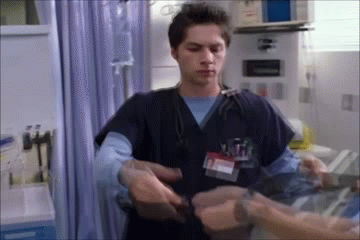
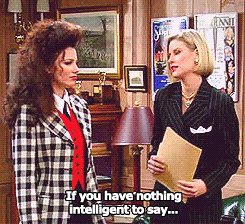
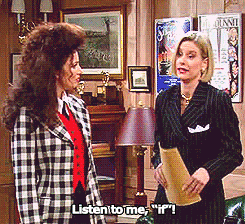
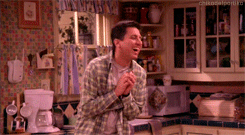
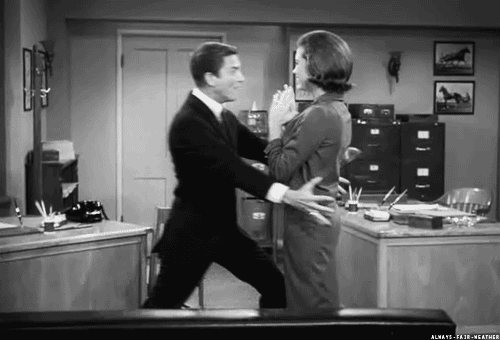
Works
Cited
Fey, Tina, and Jack Burditt.
"Live from Studio 6H." 30 Rock. NBC. 26 Apr. 2012. Netflix.com. 2012.
Web. 10 Mar. 2013.
.
Fey, Tina, Tracey Wigfield, and
Luke Del Tredici. "Queen of Jordan 2." 30 Rock. NBC. N.d.
Netflix.com. NBC, 2012. Web. 10 Mar. 2013.
6%3A+Queen+of+Jordan+2%3A+The...>.
Gray, Herman. "Equity and
Diversity in Media Representation." Critical Studies in Media
Communication 18.1 (2001):
103-08. 18 May 2009. Web. 19 Feb. 2013. .
Kilburn, Ashley J., and Brandon R. Kilburn. "Linking
the Classroom to the Living Room: Learning through Laughter with the Office." Academy of
Educational Leadership Journal 16.2 (2012): 21-31. ABI/INFORM Global; ProQuest Research Library. Web. 11
Feb. 2013.
Lawrence, Bill. "Bill Lawrence." Interview by
Christa Miller. Writers Guild Foundation. Writers Guild Foundation, 19 May 2011. Web. 21 Apr. 2013.
events/bill-lawrence-51911/>.
"Loyal Viewers Mean Slow Changes in TV News
Ratings." Buffalo News (Buffalo, NY) 2013. Print.
Martin, Jake. "Why Sitcoms Matter." America
Magazine. America Magazine, 14 Nov. 2011. Web. 14 Feb. 2013. .
Morreale, Joanne. "Sitcoms Say Goobye: The Cultural
Spectacle of Seinfeld's Last Episode." Journal of Popular Film and Television (2000): 109-15. Print.
Reiner, Carl, and John Whedon. "The Bottom of Mel
Cooley's Heart." The Dick Van Dyke Show. CBS. 9 Feb. 1966. Television.
Russell, Cristel Antonia, Barbara B. Stern, and Barbara B.
Stern. "CONSUMERS, CHARACTERS, AND PRODUCTS:
A Balance Model of Sitcom Product Placement Effects." Journal of
Advertising 35.1 (2006):
7-21. Print.

